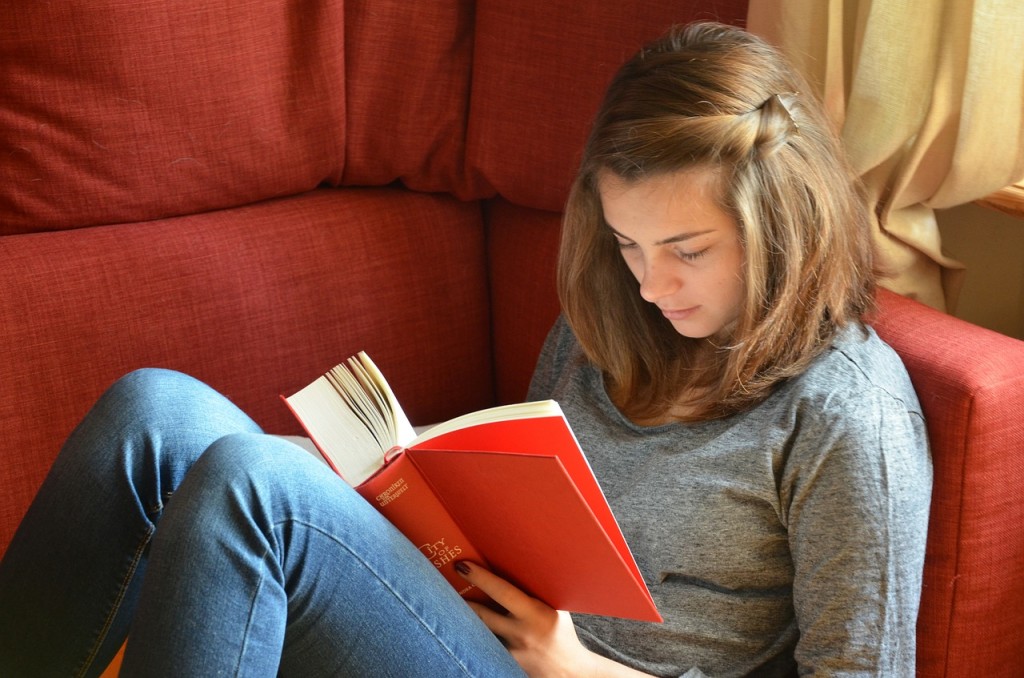Novels Mentioned
- The Kite Runner by Khaled Hosseini, translated by Berliani M. Nugrahani
- The Light Between Oceans by M.L. Stedman
- My Brilliant Friend (and 3 companion novels) by by Elena Ferrante, translated by Ann Goldstein
- The Three-Body Problem by Liu Cixin, translated by Ken Liu
- Cold Mountain by Charles Frazier
- The Book Thief by Markus Zusak
- The Guernsey Literary and Potato Peel Pie Society by Mary Ann Shaffer and Annie Barrows
- Gone to Soldiers by Marge Piercy
- Hotel on the Corner of Bitter and Sweet by Jamie Ford
- Snow Falling on Cedars by David Guterson
- A Constellation of Vital Phenomena by Anthony Marra
- Code Name Verity by Elizabeth E. Wein
- The Alice Network by Kate Quinn
- Transcription by Kate Atkinson
- A Column of Fire by Ken Follett
About a year ago, when I was setting up my reading plan for the upcoming year, I came across one challenge that included this entry: “Read a book to learn something.”
My immediate reaction to this directive was, “Every book I read, I read to learn something.” Nevertheless, within the context of that particular reading challenge I interpreted this entry as a directive to read a nonfiction book.
But every time I finish a novel I remember anew that I do learn something from every book I read, not just from nonfiction. I’ve learned a lot from novels explicitly categorized as historical fiction, but I’ve also learned from novels in various genres such as science fiction, mysteries, and thrillers.
Here are 15 novels that have contributed to my general knowledge of several topics.
Many novels have served as fictional introductions to other cultures. The Kite Runner by Khaled Hosseini, translated by Berliani M. Nugrahani, taught me about the ethnic, religious, and political turmoil in present-day Afghanistan. The Light Between Oceans by M.L. Stedman introduced me to what life was like for lighthouse keepers on isolated islands along the coast of Australia in the years after the first world war. I learned what life was like for working-class people in Naples, Italy, after World War II from My Brilliant Friend and its three companion novels by Elena Ferrante, translated by Ann Goldstein. And I got a first-hand picture of life during China’s Cultural Revolution from The Three-Body Problem by Liu Cixin, translated by Ken Liu.
I’ve learned from novels more about war than I ever wanted to know. Cold Mountain by Charles Frazier made me understand how the Civil War devastated both the land and the people who lived on it. The Book Thief by Markus Zusak and The Guernsey Literary and Potato Peel Pie Society by Mary Ann Shaffer and Annie Barrows both made me realize the magical power books can have for people experiencing horrors such as World War II. Gone to Soldiers by Marge Piercy made me marvel at how resilient and brave people can be in the face of those same horrors. Jamie Ford’s Hotel on the Corner of Bitter and Sweet and David Guterson’s Snow Falling on Cedars taught me how unfair and long-lived political and ethnic suspicion and hatred can be. From A Constellation of Vital Phenomena by Anthony Marra I learned the basis for the Russian war with Chechnya.
Spies are a big part of war, and I’ve learned just about everything I know about espionage from novels. Code Name Verity by Elizabeth E. Wein taught me about courage and the power of friendship in the face of unspeakable fear. The Alice Network by Kate Quinn showed me bravery under threat of death in the first world war, as did Transcription by Kate Atkinson in the second. From A Column of Fire by Ken Follett I learned about the origin of spying during the reign of Queen Elizabeth I.
But I don’t just learn historical facts by reading fiction. I learn about human nature, about human desires and aspirations, about the desire to love and be loved, the search for one’s identity, and the courage to act in extraordinary circumstances. And also, yes, about the dark parts of the human heart and our capacity to inflict pain and suffering on others throughout time.
I’ve had a lot of formal schooling. But much of what I know about life I learned from reading fiction.
© 2019 by Mary Daniels Brown

